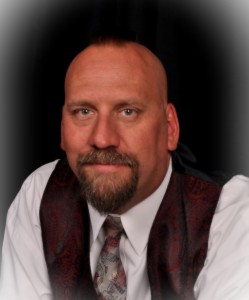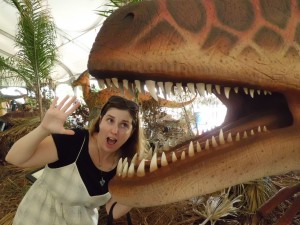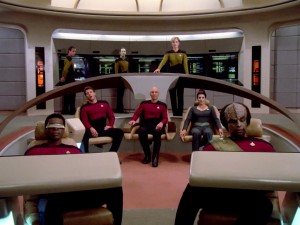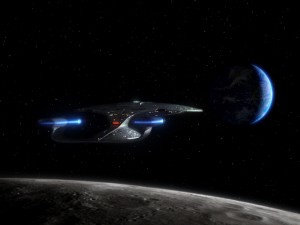A guest post by Quincy Allen.
 Like so many born in the sixties, I was raised on television. In my case it was mostly cartoons, and I reveled in them because they took me “someplace else.” Even as a preschooler I found the real world to be banal. Something was always missing from the universe around me, a sense of purpose in crisis. To put it bluntly, suburbia was-and still is-a hive, one with few predators beyond shady car salesmen and cut-throat roofing companies.
Like so many born in the sixties, I was raised on television. In my case it was mostly cartoons, and I reveled in them because they took me “someplace else.” Even as a preschooler I found the real world to be banal. Something was always missing from the universe around me, a sense of purpose in crisis. To put it bluntly, suburbia was-and still is-a hive, one with few predators beyond shady car salesmen and cut-throat roofing companies.
By design, the culture of suburbia suppresses any sense of crisis, attempting to bubble-wrap existence at every turn. It strives to create cogs born and bred for the great machine that is our society. That’s not a condemnation, merely an observation. Such were my early stomping grounds, and many of us-particularly devotees of geekdom-have our roots in just such culture.
Interestingly, there is a misapprehension among many Americans raised in suburbia that the Chinese character for “crisis” is the same as the one for “opportunity.” While this is inaccurate, I believe many of us cling to the notion because it speaks to an inner-self that few ever explore in their daily lives. It is this same inner-self that appreciates the film Fight Club and why most of us remember the phrase, “That which does not kill you makes you stronger,” probably learned from the 1982 film Conan rather than from having read Nietzche.
These things speak to us because we’re all seeking something, and in suburban society we can only find it in fiction and films depicting the fantastic. What we seek is import and wisdom-a sense of participating meaningfully in great events that shape the fabric of existence-whilst going mindlessly along in whatever daily grind holds sway over our mortgages and rent payments. Yet we desperately hunger for the wisdom of the ages, learned through epic events that threaten our sense of existence, whatever that may be.
During my formative years-and thanks to my brother-I discovered a handful of authors who stole me away from the banal. Within their tales I was carried to the stars and bore witness to great events, learning from them as if I had been an active participant. I discovered places like Heinlein’s Mars and Zelazny’s Amber. I cut my imaginative teeth on stories spun by Asimov and Clarke, delving deeply into tomes like The Science Fiction Hall of Fame Volume I (printed in 1971 and sitting on a shelf next to me as you read this). They were my first real exposure to import and wisdom, and done in a way that was both intriguing and meaningful to a tenant of the banal.
Philosophers-and they were philosophers-like Campbell, Sturgeon, Bradbury, and Leiber shaped what was a very young, hungry, and naive mind. I was the chalice to their wine, and what I learned between those pages read so long ago still shapes who and what I am today. Zelazny taught me what a shadow walk is and how to appreciate the significance of journey, even when I’m just hiking the Rockies. Heinlein gave me a comprehension of what it means to “grok” and helped me understand why a human should know how to “change a diaper, plan an invasion, butcher a hog, conn a ship, design a building, write a sonnet, balance accounts, build a wall, set a bone, comfort the dying, take orders, give orders, cooperate, act alone, solve equations, analyze a new problem, pitch manure, program a computer, cook a tasty meal, fight efficiently, die gallantly.” Thanks to Laumer I understand the difference between men of action and men of sophistry; I comprehend what loyalty is and have a sincere sense of duty in the face of personal sacrifice.
I am a son of many such fathers… and mothers like Le Guin and Sheldon who helped me understand the differences between the sexes and, more importantly, how shameful inequality in any society really is. I have many more such parents, but you get the point. These thinkers, these visionaries, shared with us their distinct notions of humanity, speculating upon “what if” we were to take current societal constructs and follow them to their inevitable conclusions. Either that or they took societal norms, turned them upside down, and held them up to the light for all to see.
And thus, having set out upon this journey of becoming an author in my own right, I find myself editing my second manuscript. In it I alter American history and explore bigotry, zealotry and sexism. I hold them up to the light and expose hypocrisy. I cast in harsh light those who would discriminate and subjugate, dealing with them via the heavy hand of a six-gun-packing privateer. It’s pure fantasy, to be sure, and pulpy, but under the surface there’s a theme of equality, of treating with other sentient beings in precisely the same manner we wish to be treated.
I can’t imagine that my work will be as highly regarded as those great visionaries who influenced me, but I can aspire to walk in their footsteps and-perhaps-make my own small contribution to what Arthur in Excalibur referred to as “future memory.”
It is a dream I have.
* * *
Quincy Allen has been published in multiple anthologies, online and print magazines, as well as in one omnibus. His steampunk version of Rumpelstiltskin is under contract with Fairy Punk Studios, and he’s written for the Internet radio show RadioSteam. His novel Chemical Burn-a finalist in the Rocky Mountain Writers Association Colorado Gold Writing Contest-was first published in June 2012, and has been picked up by Fantastic Journeys Publishing. His new novel, Jake Lasater and the Blood Curse of Atheon, will be on sale this summer, and he’s writing an off-world steampunk-esque series. You can follow his ongoing exploits on Facebook and at his website.




